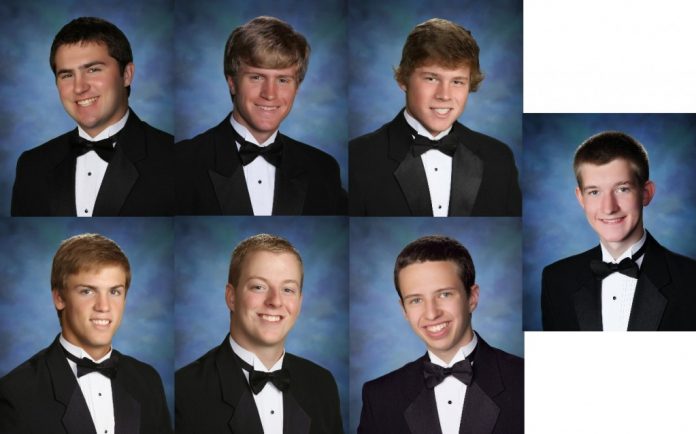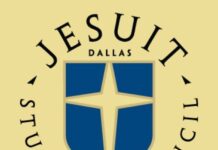When one envisions the top academic institutions or universities in the United States, schools such as Harvard, MIT, and Stanford often stand as the cream of the crop, the best of the best. However, three institutions stand at, or even above, the most distinguished Ivy League schools, academies that only accept the most dedicated, innovative, intellectual, and well-rounded young men and women throughout the entire United States – the military academies.
The most renowned military academies include the Air Force Academy in Colorado Springs, Colorado, the Naval Academy in Annapolis, Maryland, and the Military Academy in West Point, New York. With an average acceptance rate of 10%, only the most qualified students attend these prestigious schools. The application process for acceptance is not for the faint of heart, requiring many more hours of work than the average university application.
One of Jesuit’s college counselors, Chris Blackwell, describes the necessity for an extensive application saying, “Military academies pride themselves on producing leaders. These are the people who will eventually lead our armed forces, so there is an element that needs to go above how well you have done on standardized tests or on an essay.”
Seven Jesuit seniors have decided to embark on this demanding journey, including Phil Young, Payton Maher, David Portner, John Struckell, Walker Embrey, Paul Arden, and Hunter Hill.
While motivated by a variety of personal reasons, each one of these Jesuit applicants has applied to the academies with service for others in mind. John Struckell, who is applying to the Air Force Academy and the Naval Academy, reminisced, “I’ve wanted to be in the military since I was a little kid, which motivated me to apply for an Army ROTC scholarship as well as to the academies.” Phillip Young, an applicant for the Naval Academy, added, “I’ve always known I’d join the service, but I think it’s just been a desire to do something purposeful and meaningful in my life.”
The application process for these seniors started way back at the beginning of the second semester of their junior year, when college counselors David Oglesby and Chris Blackwell encouraged those interested in the academies to discuss and start the preliminary process of the multi-dimensional application. “I encourage students to talk to Mr. Oglesby or me after our junior PSAT meeting in January, so we can assist them with applying to the summer seminars and congressional appointments,” says Blackwell.
After the initial introduction with the counselors, the military academies encourage applicants to start taking both the SAT and ACT in January, eventually taking both tests multiple times by October of their senior year. This ensures that the applicants achieve the highest score possible, increasing their chances of an appointment to one of the academies. In order to achieve high scores, SAT/ACT test prep classes are often taken throughout the first semester of junior year.
Along with SAT/ACT exams during second semester, applicants actively research potential U.S congressmen and senators to nominate them for an appointment to one of the academies, a requirement for acceptance. The lengthy nomination process involves a detailed application, including extensive interviews and questionnaires.
Most local congressmen are only allotted 5 slots for each service academy, requiring them to narrow down their applicant pool of hundreds of applicants within their district. The result is an extremely competitive process; only the most qualified receive nominations. “I’d say the hardest part of the application is getting the congressional nomination, because the congressmen and their teams tend to take a long time to make a decision on who they nominate,” says Young. Jesuit students have applied for nominations from multiple government leaders including Senators Cornyn and Hutchinson, as well as local congressmen Sam Johnson and Pete Sessions.
All three academies also provide tremendously informative summer seminars at their respective campuses during the summer following junior year. These seminars are week long sessions where applicants live the life of a “plebe,” or a freshman attending the academy. Following the stringent schedule of current students, the attendees of the seminar are awakened bright and early each morning for a “refreshing” session of physical fitness, often referred to as “PT.” After PT, they follow a regular class schedule, providing a realistic experience of a typical day in the life of a student at the academy.
Senior David Portner, who applied to the Naval Academy and attended their summer seminar, fondly recalls how the seminar motivated him to serve his country by attending the academy. “While I was there, I was captivated by the brotherhood present and the idea of working together for something greater than oneself,” says Portner. After the seminar, the academies hope that each applicant, like Portner, is confident in his or her decision to attend an academy.
Along with the academic side of the application, potential cadets musts pass a rigorous Candidate Fitness Assessment. The test is a 40 minute drill that consists of (average for male applicants) a 67 ft. basketball throw, 10 pull-ups consecutively, a shuttle run in 9.1 seconds, 72 sit ups (1 minute) , 64 push ups (1 minute), and a 1 mile run in 6:43 minutes. This often requires early preparation for candidates in order for them to ultimately perform well on the exam and advance their chances for an appointment to an academy.
After receiving a congressional nomination, completing the physical fitness exam, and passing all other medical requirements, the candidate must complete the processes of submitting a myriad of information such as written essays, transcripts, letters of recommendation, and writing samples. An interview with an official admissions representative is also required.
During an informational visit to Jesuit, Midshipman Bennett Thomas and Midshipman Charles Goodman, seniors at the Naval Academy, passed along important advice to anyone considering applying to the academy. “Start everything earlier. You’ll get a lot more help if you start the process early,” said Thomas.
Along with their advice for applications, Thomas and Goodman shed light on their personal experiences attending a military academy. “The leadership that you are exposed to lasts a lifetime. It carries on to the business world and the professional world. The confidence that we’ve gained through the years has been incredible,” said Thomas.
Goodman also commented on the incredible relationships cultivated at the academy. His most memorable moment during his career at Navy was meeting his current best friend at the beginning of freshman year. Thomas concurred on the importance of friendship at the academy, saying, “It’s unbelievable how close you become with friends. We’ll always be there for each other.”
Writer’s comment – Thanks to the Naval Academy Midshipmen for taking the time for an interview. We all appreciate your service as you graduate and move into your roles as Navy officers.
The Roundup staff wishes the seven seniors applying to the military academies the best of luck as they wait on the results of their applications.






